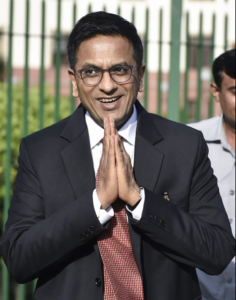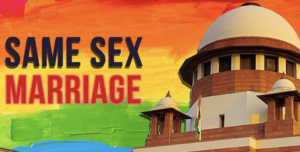
LGBTQ+ Rights in India: Supreme Court to Hear Petitions for Same-Sex Marriage Recognition

The Supreme Court has chosen a five-judge group to examine the question of same-sex marriage. The panel, which will be led by Chief Justice of India D Y Chandrachud, will include Justices Sanjay Kishan Kaul, Ravindra Bhat, Hima Kohli, and PS Narasimha. The petitions will be reviewed on Tuesday, April 18.
IS THIS A SIGNIFICANT STEP FOR THE BROADER INVESTIGATION, GIVEN HOW MUCH SPOTLIGHT HAS BEEN FOCUSED ON THIS ISSUE?
Without a doubt, sure. We may recall that when the Supreme Court was debating how to handle the arguments, the centre had previously proposed that the case be referred to a five-charge bench because it included and involved some significant constitutional questions, particularly in relation to the fundamental rights of individuals coming in from the LGBT community.
The Supreme Court then sent the matter to the newly constituted five-judge panel in light of this. The Chief Justice of India, D Y Chandrachud, who has served as an icon for LGBT rights in India and is well-known for his ruling in an update declaring that Section 377 has been decriminalised, is on the bench with a number of other eminent judges, including the second senior most judge in the Supreme Court right now, that is, Justice Sanjay Kishan Kaul.

Even after decriminalising homosexuality, the Supreme Court expressly left the rights to marriage, property, and spousal support, to name a few, available for future challenge. Since the special Marriage Act only refers to marriages between two individuals at this time, the Supreme Court and other High courts have heard petitions over the past few years; they understand this to mean a man and a woman, not same-sex couples.
To have their cases heard, many petitioners from the LGBT community itself went to the Supreme Court and several High courts. It is significant to note that petitioners have asked certain High courts and the Supreme Court to examine matters in light of this.
All cases from the nation’s high courts were transferred to the Supreme Court since it decided to handle every case independently. The Supreme Court has been considering how to conduct this hearing over the past few months while taking into account the significant problems it raises. Because it will affect how the nation interprets the Constitution, the center had clearly indicated in the prior thesis that this is a crucial constitutional issue.

WHAT IS THE CURRENT STATUS OF THE CASE?
Beginning on April 18, 2023, the Supreme Court of India will consider applications requesting the legal recognition of same-sex unions. When a ruling will be made in the case is still up in the air. According to the Indian government, “living together as same-sex partners” is not analogous to the idea of an Indian family. The court has taken on related cases from some states as well. Even if same-sex marriage would be legally recognized in India, this would only be a small step towards resolving the issues that the LGBTQ community is currently facing.
WHAT IS THE LATEST UPDATE ON THE SAME-SEX MARRIAGE CASE IN THE SUPREME COURT OF INDIA?
According to the most recent information, the same-sex marriage case has been submitted by the Supreme Court of Indian to a five-judge Constitution bench. The Supreme Court will start taking applications for same-sex union recognition on April 18, 2023. The court has collectively taken over a modest number of legal petitions submitted to lower courts seeking the recognition of same-sex marriage. According to an affidavit, the Indian government provided before the Supreme Court, couples living together as same-sex partners is not comparable to the Indian concept of the family unit.

CONCLUSION
In conclusion, the Supreme Court of India’s creation of a five-judge panel to hear requests for the recognition of same-sex marriage is a significant breakthrough in the nation’s LGBTQ+ rights movement. The panel’s hearing of this case, which will address important constitutional problems, will be presided over by Chief Justice of India D Y Chandrachud, a champion of LGBTQ+ rights, and might have an impact on how the Constitution is interpreted in the future.
The hearing of these petitions is a step in the right direction toward resolving the issues the LGBTQ+ population in India is facing, even though it is unclear when a decision will be made. Let’s keep in mind Justice Chandrachud’s quote, “Inclusiveness and acceptance of variety are the hallmarks of a thriving nation,” as we proceed.








